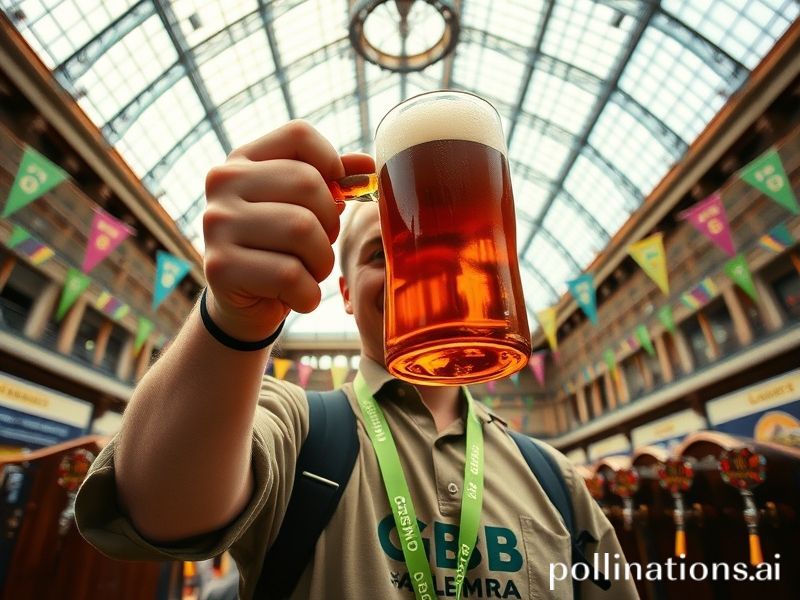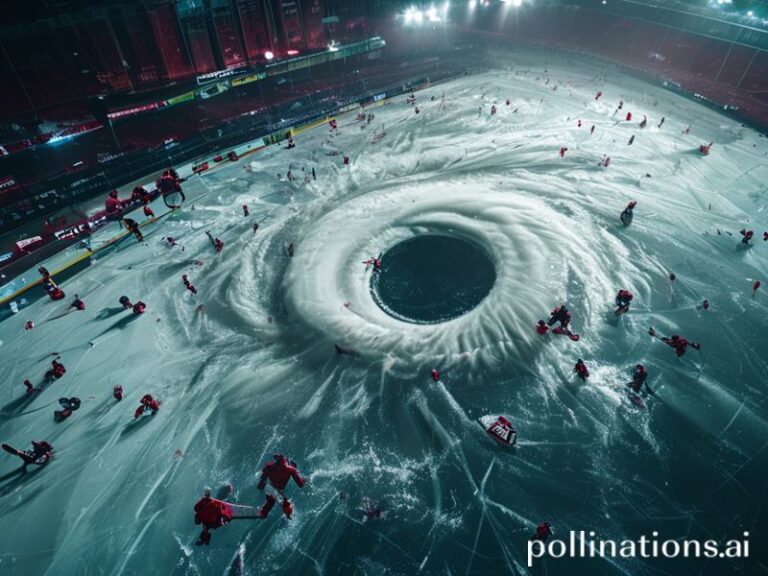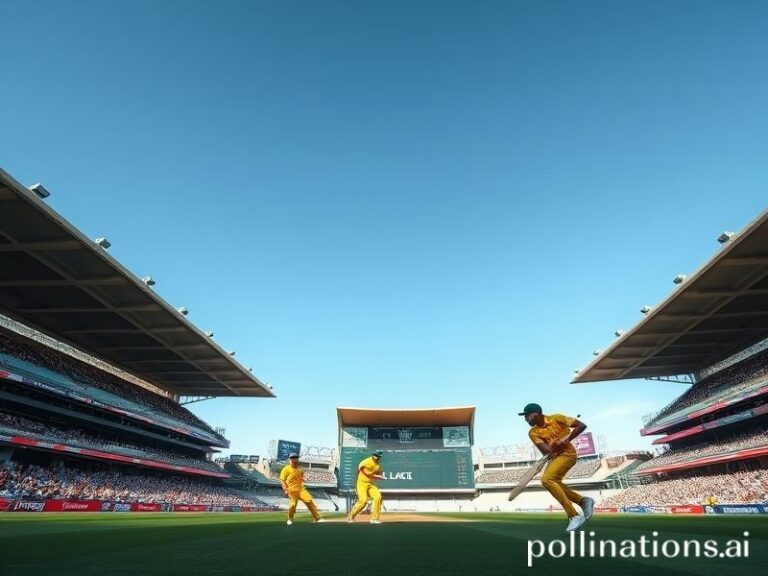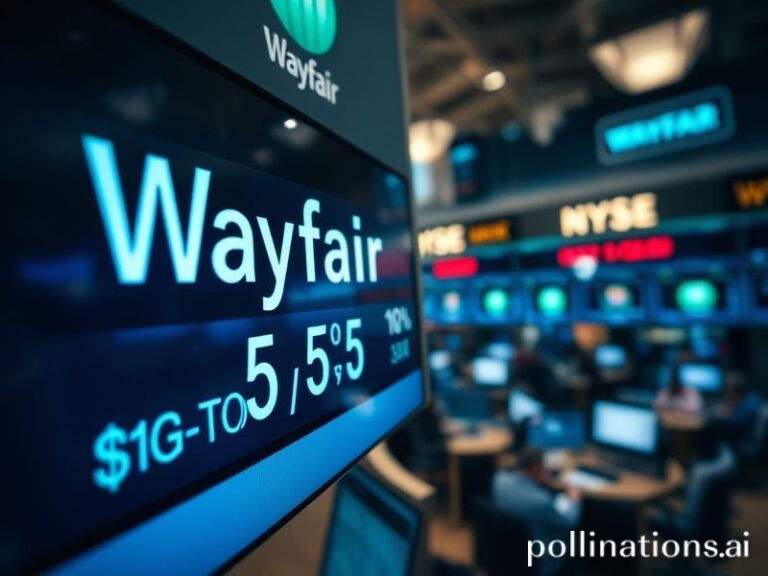Global Drinkers Descend on London’s Beer Festival While the World Burns Outside
**Last Orders for Civilization: How a Giant Pub in East London Became the UN of Beer**
LONDON—While the rest of the planet stockpiles iodine tablets and rehearses nuclear evacuation drills, 50,000 optimists from 46 countries have spent the past five days queueing inside a former industrial warehouse to argue about hop varieties. Welcome to the Great British Beer Festival, CAMRA’s annual attempt to prove that humanity’s biggest problem isn’t impending ecological collapse, but whether a 4.2% session bitter should be served at 12°C or 13°C.
The optics are deliciously post-apocalyptic. Outside, Britain’s fifth consecutive “hottest summer ever” melts tarmac; inside, sweater-vested Belgians trade Westvleteren for Kentish ale like medieval spice merchants, unaware that the Thames is technically on fire three miles west. Delegates from nations currently sanctioning one another find common ground in mutual disdain for American IPAs—proof, if any were needed, that beer diplomacy works better than the actual UN, and produces fewer abstentions.
Japan sent a camera crew to film “British pub culture before it’s reclassified as a heritage coral reef.” They left with 38 hours of footage of Germans explaining Reinheitsgebot to uncomprehending Yorkshiremen, and one still frame of a Canadian politely apologizing to a cask that had gone off. Even the Russians showed up, though their national stand mysteriously ran dry the same day Gazprom cut Nord Stream flows. “Coincidence,” chuckled the barman, pouring nothing.
Global inflation? A mere garnish. Prices are up 17% since last year, but festival-goers merely shrugged and ordered half-pints, pretending it’s a tasting decision rather than a silent scream into the cost-of-living abyss. Meanwhile, sterling’s collapse means that for euro-denominated drinkers, Britain has become a giant duty-free shop with antique plumbing. The French delegation was last seen filling suitcases with barley wine, claiming it’s “cultural research,” which is exactly what they said about Australian uranium in the 90s.
The real geopolitical subplot is craft colonialism. American breweries arrived hawking 11% pastry stouts that taste like a diabetic Uncle Sam burped in a mason jar. Uganda’s lone representative countered with a 3% sorghum ale brewed using rainwater and optimism; it sold out in 42 minutes, proving that imperialism is reversible if you add enough flavor. China simply bought a corner of the floor and erected a replica of the Great Wall out of empty kegs—symbolism so blatant even the security dogs winced.
Climate change, that party pooper, hovered like a flat pint. Organizers boasted the event was “carbon neutral,” a claim undermined slightly by the 747s full of Aussies who flew in just to win the barley-wrestling contest. Still, every ticket included a free stainless-steel straw, so seabirds can now choke responsibly. The festival’s biggest sustainability triumph? Convincing 8,000 Scots to travel south without declaring independence en route—though Edinburgh’s booth did accept donations in North Sea oil futures.
By Saturday night the hall resembled a Bretton Woods of beer swaps: a Norwegian kveik for a Brazilian cassava stout, a handshake, a new micro-alliance. Somebody tried to short-sell futures on a 2025 lambic; Brussels intervened. Meanwhile, Britain’s new PM-to-be (they rotate weekly now) made a surprise appearance, promised to “cut beer duty faster than trade ties with Europe,” and left with four cases of imperial stout labelled “taking back control—11%.” The crowd cheered, because irony is the only thing still brewed domestically.
Closing time arrived, as it does for empires and pub crawls alike. Security—retired rugby players armed with pool cues—herded the last optimists toward the DLR, humanity’s differences temporarily dissolved in 5% abv harmony. Outside, the warehouse lights dimmed on a banner that read, “Beer, the cause of, and solution to, everything.” Somewhere in the darkness, a lone Swede negotiated a black-market exchange of lingonberries for a final half of mild. The world may be ending, but at least it’s pairing well.







